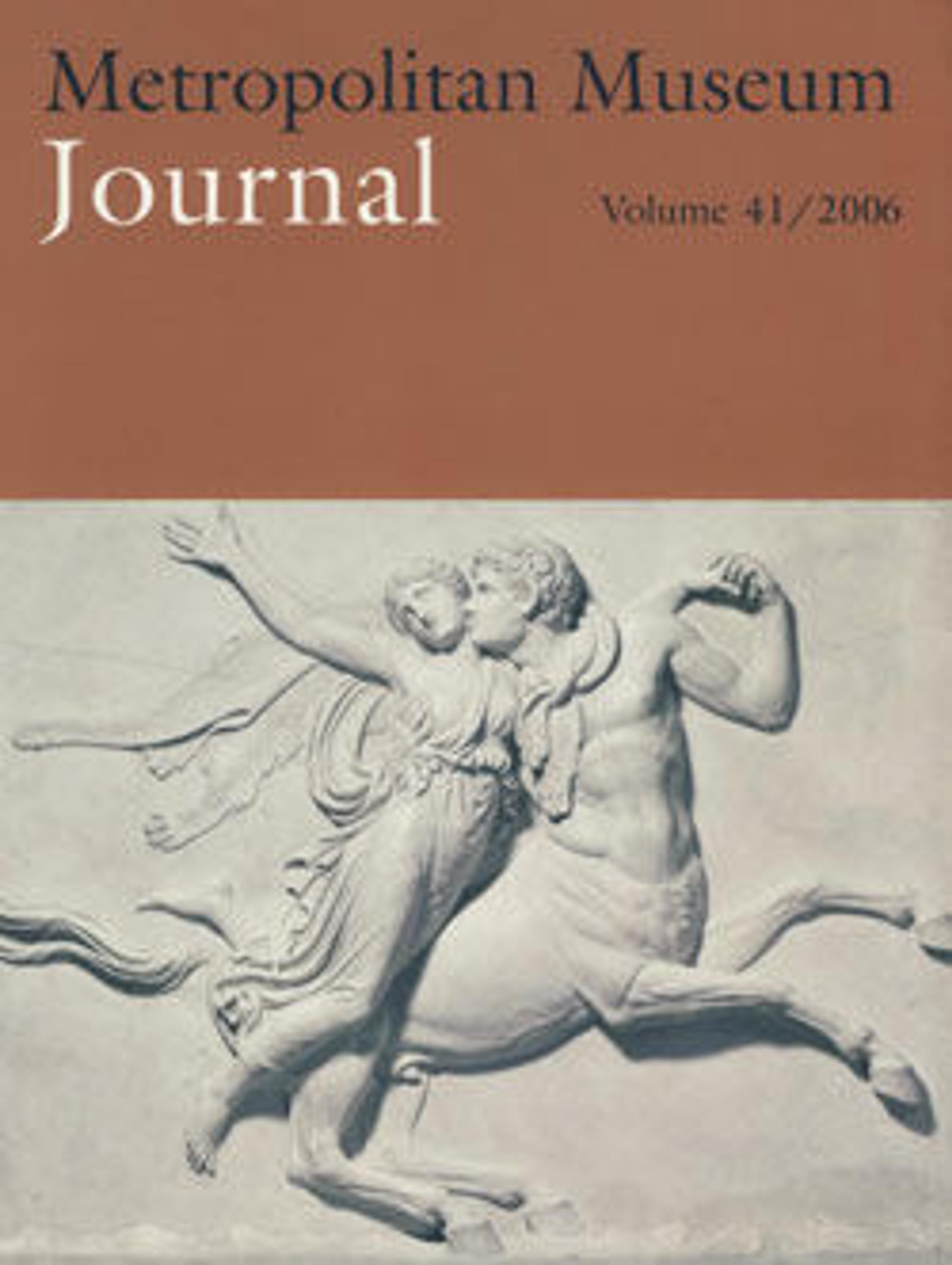Terracotta kylix: Komast cup (drinking cup)
Obverse and reverse, komasts (revelers)
The black-figure technique was introduced into Athens from Corinth at the end of the seventh century B.C. During the early sixth century, Attic cup painters favored Corinthian motifs, like these dancing revelers. Indeed, the Komast cup is the earliest canonical type of Attic black-figure kylix.
The black-figure technique was introduced into Athens from Corinth at the end of the seventh century B.C. During the early sixth century, Attic cup painters favored Corinthian motifs, like these dancing revelers. Indeed, the Komast cup is the earliest canonical type of Attic black-figure kylix.
Artwork Details
- Title: Terracotta kylix: Komast cup (drinking cup)
- Artist: Attributed to the manner of the KX Painter
- Artist: Attributed to the Painter of New York 22.139.22
- Period: Archaic
- Date: ca. 580–570 BCE
- Culture: Greek, Attic
- Medium: Terracotta; black-figure
- Dimensions: H. 3 3/4 in. (9.5 cm)
diameter 8 1/4 in. (21 cm) - Classification: Vases
- Credit Line: Rogers Fund, 1922
- Object Number: 22.139.22
- Curatorial Department: Greek and Roman Art
More Artwork
Research Resources
The Met provides unparalleled resources for research and welcomes an international community of students and scholars. The Met's Open Access API is where creators and researchers can connect to the The Met collection. Open Access data and public domain images are available for unrestricted commercial and noncommercial use without permission or fee.
To request images under copyright and other restrictions, please use this Image Request form.
Feedback
We continue to research and examine historical and cultural context for objects in The Met collection. If you have comments or questions about this object record, please contact us using the form below. The Museum looks forward to receiving your comments.
